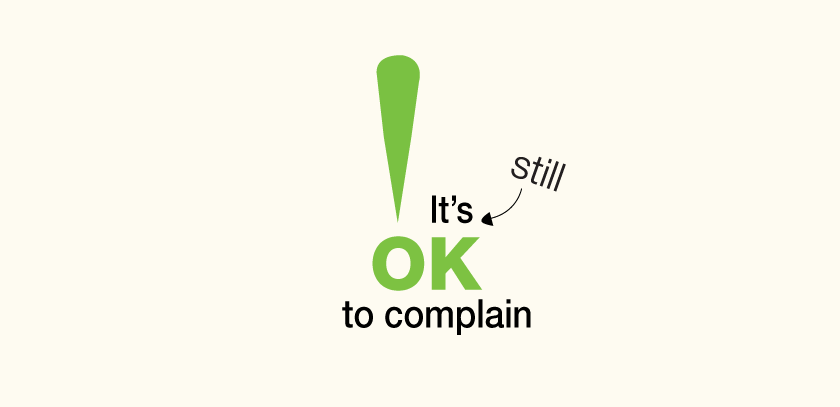The role of being a primary carer when your loved one has complex care and communication needs is challenging. Often it feels like every single day brings appointments and therapy requirements; we plan meals, prepare and give medication, provide personal care and other interventions; spend time writing emails and making calls to medical specialists, liaising with agencies and other supports, and ordering supplies.
The constant rotating door of supports in our homes means there can be people in our homes every day of the week and there’s seldom a minute to call our own, and sometimes it really feels like we live in a fish bowl.
In the midst of all of this, carers can lose sight of their own physical and mental health needs and cannot find the time, finances or energy to do anything about prioritising their own health needs.
I am writing this as the parent of 2 amazing adults, 1 of whom lives with significant support needs around both communication and daily cares, and as someone who has been on a huge journey in the last 12 months around learning to recognise that my health care needs as much priority as that of my loved ones.
For 28 years my life has revolved around daily cares, communication assistance, therapies, medical interventions and appointments for my loved one. My meals were often snatched and eaten in a hurry, and sometimes sourced via drive through as we left yet another appointment late in the day when my lunch had been skipped.
Coffee was the go-to to help survive the day when nights of broken sleep were catching up.
I was unable to lose weight, my fitness was non-existent because I couldn’t find the time, and I was stressed and anxious. My aging mother and extended family often needed assistance with tasks, and in one case, an extended family member needed significant assistance to access the NDIS.
In the midst of all of this I was not caring for myself. My blood pressure was elevated, my weight was rising and I avoided seeing my GP because she would remind me yet again that I needed to take better care of myself – and then I would feel guilty that I was not finding a way to do that – ‘parental guilt’ took on a whole new level when I couldn’t even look out for my own health needs.
The reality is that so much needs to happen for a carer to look after themselves.
It’s not just finding the time to exercise or eat properly or the funds to access a personal trainer or gym – things have to happen before that.
In my case, the first thing that had to happen was that my family member needed consistent and reliable supports in place. The support workers needed training in communication, cares, safe transfers and so much more. Once this occurred, I was gradually able to step back and start to take some time for myself. At the same time I was learning to say ‘no’ to some requests and to put boundaries in place to allow some ‘me’ time. Without these things in place the next steps could not occur.
In the last couple of years I have come to the realisation that no matter how much support my family member has in place, I am always going to be the stop gap – the families that are mentors for us overseas are finding that even with plan A,B, C in place, parents were still having to step in when their loved one’s supports drop out.
I recognised that I need to be here for the long haul and that if I did not address my health needs, I was not going to be.
In my family there is a history of stroke, heart attack and diabetes – I did not want that to become my story and I realised I needed to do something to be physically healthier and stronger in order to continue to provide care for my family member and to be around for a long, long time.
In October last year I started training consistently with a personal trainer. She offered nutrition advice but I wasn’t ready to engage with that aspect initially. I started weekly sessions targeted at strength training and improving my fitness. I won’t lie, it was hard. I used to joke that she was trying to kill me but slowly I started to have less knee and lower back pain. I learnt to engage my core when providing assistance with transfers or cares for my family member. I started to physically feel better, and was more relaxed. My anxiety and overall mental health began to improve. I learnt to manage time differently – I found that if I headed out for a walk first thing in the morning when the support worker arrived, I could get a 20-40 minute walk in – and it relaxed me. It was my time to think about things, and ironically it also helped to clear my head.
I started looking forward to PT sessions. Over time I felt more comfortable with my PT and was ready to engage around nutrition. This has resulted in a significant weight loss, I have delayed the need for bilateral knee replacements, and am hoping to get my blood pressure medication reduced soon. The nutrition aspect was hard – some days I am so tired because at this stage my family member does not have regular overnight support ( but is working towards it), and we still have a lot of appointments that I must attend. I am learning though to plan ahead for my meals, work off the macros my PT has given me, and to make consistent healthy choices because it is important for me to eat healthily in order to be healthy.
Recently when I said to a friend that finding the time and funds for PT sessions was hard, she commented that if either of my adult children needed something, I would find a way; and that my needs for the time and the funds for PT were just as important, and that I should prioritise them in the same way that I would for my family members. She was right. It’s a hard lesson to learn – as carers we will always find a way to make things happen for our loved ones, by making sacrifices or prioritising their needs in order to meet them – but the reality is that we have needs to and we are important! It’s hard to do, but once we start realising this, we will be better carers.





